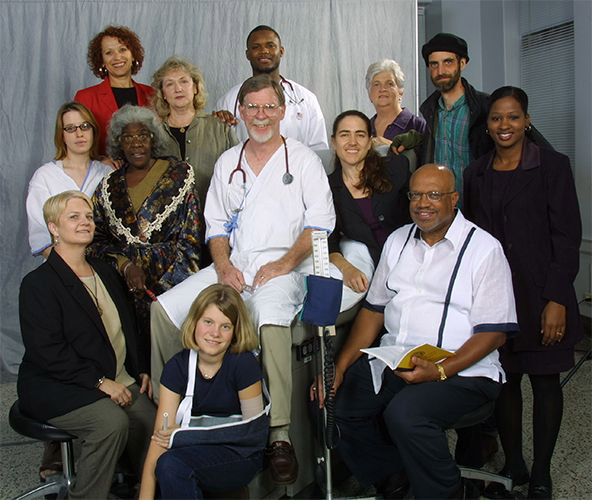
The Standardized Patient Program began in 1989 as a Gynecological Teaching Program. Throughout the 1990s, the program continued to expand, adding assessments such as the Standardized Clinical Objective Performance Exam (SCOPE) and the Tulane Objective Structured Clinical Exam (TOSCE). Additional teaching sessions were also added, such as Focused Exams (FEX) and Male Urogenital Teaching (MUTA) sessions. Increasing focus on patient-centered communication led to the development of sexual history, medical interviewing and patient education and counseling sessions. The Standardized Patient program was also involved in a number of grants, including the Physical Diagnosis Ambulatory Disease Management Grant, Death and Dying Grant and Ambulatory Healthcare Grant.Read More
In 2000, the Standardized Patient program collaborated with Balazs Moldovyani of Lionis Software to create WebSP. WebSP, now LearningSpace, is a flexible and easy-to-use integrated web-based solution for Standardized Patient based testing and medical education. This software allows students more immediate and detailed access to score reports and digital video captured during training and assessment sessions in the SP Center. LearningSpace has gone on to be adopted by similar programs across the nation and the world.
Tulane's Standardized Patient program has become a recognized industry expert, frequently advising other institutions on how to organize and use Standardized Patients. Tulane has conducted clinical skills assessments for the University of South Alabama and Baton Rouge General Hospital since 2002.
The Standardized Patient Program moved into its current state-of-the-art facility in 2007. We provide approximately 10,000 hours of practical testing and teaching to the students of the School of Medicine each year. New projects are continually added to the SP curriculum. Future plans include an increasing focus on hybrid simulation, integrating the use of SPs with medical simulators.
